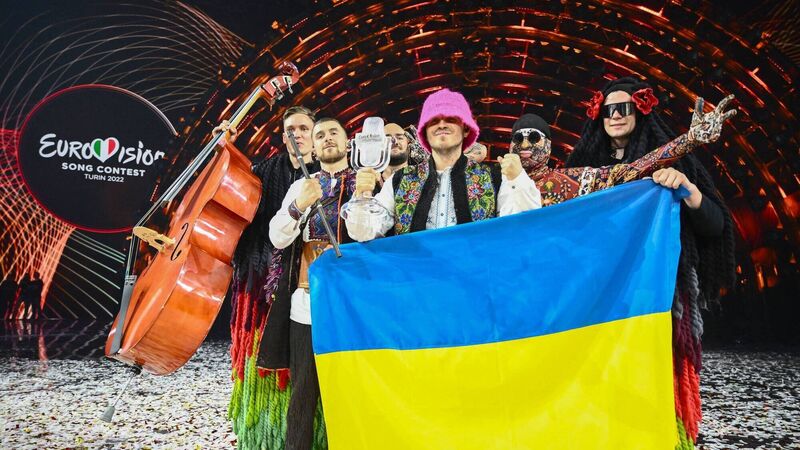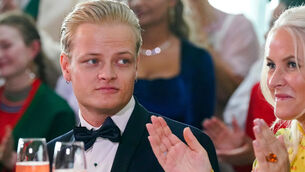Cónal Creedon: Eurovision, the zeitgeist barometer

The Kalush Orchestra pose onstage with the winner's trophy and Ukraine's flags after winning last year's Eurovision Song contest. Picture: Marco Bertorello/AFP via Getty Images
Anyone with even a passing interest in Eurovision will have come across Will Ferrell’s on Netflix.
In a narrative fuelled by an obsession for the Icelandic nonsense-lyric, Ja Ja Ding Dong, the Eurovision Song Contest is exposed as a cliché-ridden parody of itself — a frivolous, evanescent, inconsequential popular music feast of glitz, glam and glitter.













